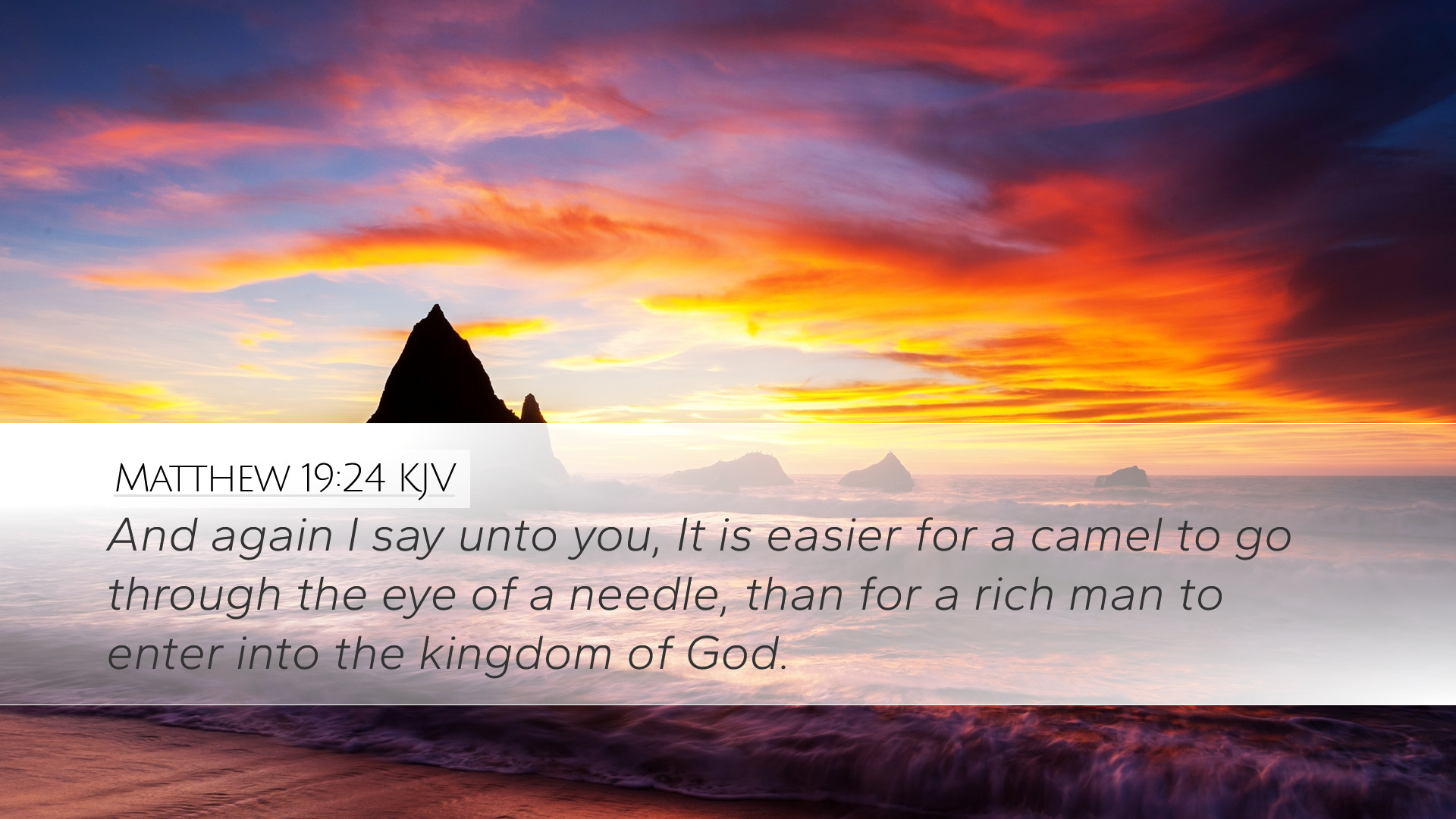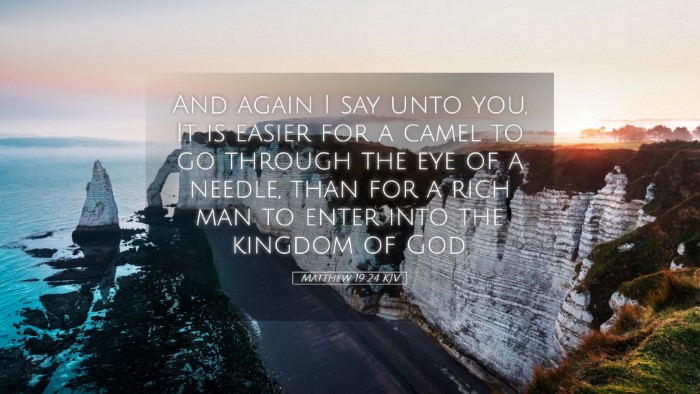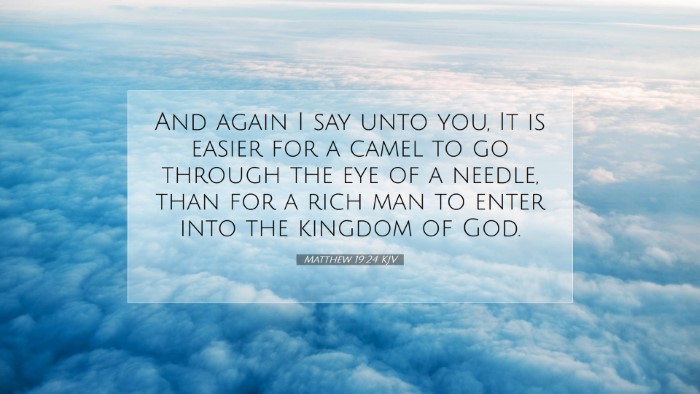Commentary on Matthew 19:24
Verse: "And again I say unto you, It is easier for a camel to go through the eye of a needle, than for a rich man to enter into the kingdom of God." (Matthew 19:24, KJV)
Contextual Background
In this poignant statement, Jesus addresses the challenge that wealth presents to spiritual growth and entry into the Kingdom of God. This occurs in the context of the rich young ruler, who came to Jesus asking what he must do to attain eternal life (Matthew 19:16). After the young man professes to have kept the commandments, Jesus reveals his attachment to riches and invites him to sell his possessions—a command that reveals the man's heart.
Insights from Matthew Henry
Matthew Henry points out that riches are a great snare to the soul. He articulates that wealth can lead to a false sense of security and entitlement, hindering one’s realization of their need for divine grace. Henry emphasizes the metaphor of the "eye of a needle," which was common in Jewish literature. The "camel" represents something large and cumbersome, illustrating the extreme difficulty for a rich person to surrender their attachments and fully rely on God.
- Spiritual Impediments: Wealth can create barriers to humility and reliance on God.
- Focus on the Eternal: Believers are called to reflect on their priorities and the fleeting nature of earthly treasures.
- Dependence on Grace: Entry into the Kingdom is not through human merit but through God’s grace.
Insights from Albert Barnes
Albert Barnes takes a practical approach to this verse, interpreting the "eye of the needle" as a reference to the narrow gates found in city walls. He suggests that while a camel could theoretically pass through if unloaded, it underscores the notion that wealth must be relinquished for salvation. Barnes emphasizes that the passage speaks of the impossibility for rich men to save themselves, reinforcing that wealth can corrupt and blind individuals to their spiritual state.
- Need for Sacrifice: True discipleship requires letting go of material attachments.
- God’s Power: Barnes reminds readers that Christ's statement wasn't that it was impossible, but rather, humanly impossible, but through God, all things are possible (Matthew 19:26).
- Encouragement for Believers: While riches can lead people astray, they can also be redirected for God’s Kingdom purposes.
Insights from Adam Clarke
Adam Clarke offers an intricate analysis, highlighting the cultural implications of wealth in Jewish society. He posits that this parable illustrates not just the difficulty but the almost impossible nature of a wealthy individual entering the Kingdom without making sacrifices. He describes the "eye of a needle" as a symbolic representation of the rigorous demands of discipleship.
- Cultural Context: Clarke notes that in Jewish tradition, wealth was often seen as a sign of divine favor, complicating the message Jesus conveys.
- Reevaluation of Wealth: Wealth should be viewed critically, with an understanding that spiritual wealth is of greater value.
- Human Effort Versus Divine Grace: He emphasizes that while human effort is insufficient for salvation, the miraculous power of God is necessary to transform hearts.
Theological Implications
The verse invites deep reflection on the intersection of faith and material wealth. It poses challenges for contemporary society, where wealth is often equated with success and stability. The early church understood the radical call to generosity and community, where the wealthy were encouraged to distribute their riches for the common good.
- Discipleship: This teaching prompts believers to evaluate their attachment to wealth and materialism.
- Kingdom Values: The Kingdom of God often subverts societal norms, placing value on the heart and relationships over material possessions.
- Hope and Transformation: There remains hope for the rich, as they too can be transformed through God’s grace, highlighting the necessity for ongoing spiritual growth.
Conclusion
In summary, Matthew 19:24 provides a compelling lesson about the relationship between wealth and spiritual well-being. The collective insights from Henry, Barnes, and Clarke enrich our understanding, urging us to grapple with the often-comforting yet deceptive nature of riches. As pastors, students, theologians, and scholars engage with this text, they are called to promote a Kingdom ethos that prioritizes God over material wealth, advocating for a faith that seeks to transform lives and communities.


